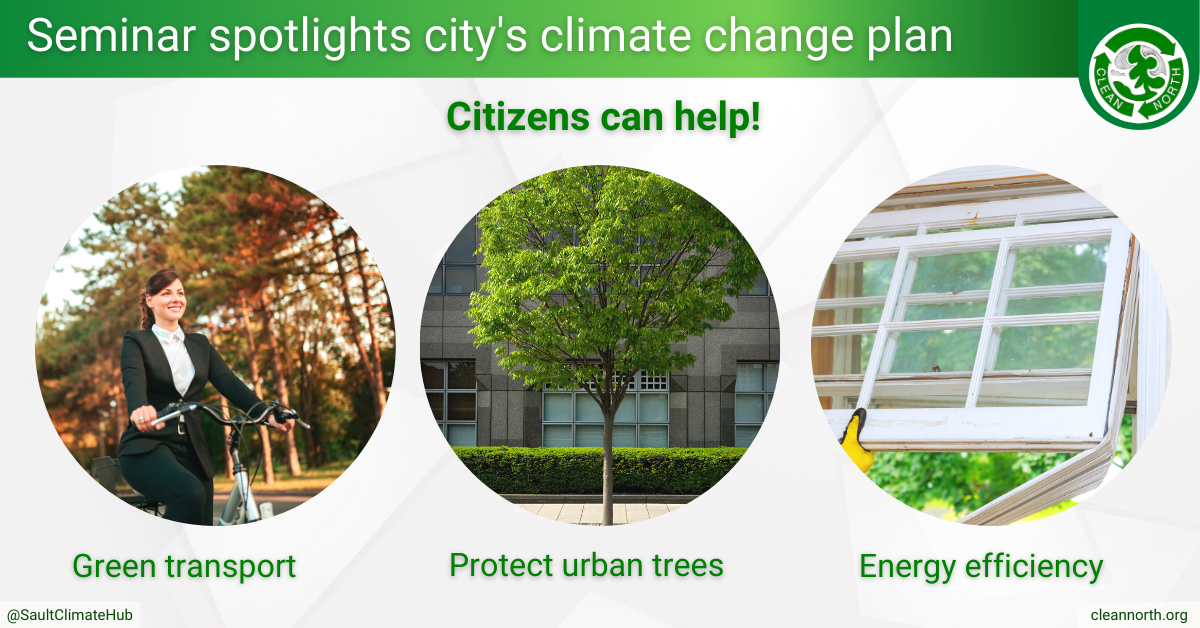
Last night our sister organization Sault Climate Hub hosted the first in a series of virtual seminars focused on climate change at the local level. The speaker was Emily Cormier, climate change coordinator for the City of Sault Ste. Marie, who gave an overview of the city’s plan to address climate change. This event drew lots of interest, with nearly 30 participants and lots of great questions.
As Emily explained, our city has been able to build capacity to address climate change through funding from the Municipalities for Climate Innovation Program. The first major local milestone was a baseline greenhouse gas emissions inventory, released early in 2020; stakeholder engagement, completed last spring; and a local action plan, approved by city council this past December. We encourage all citizens to review the city’s inventory and plan documents. You can also check out Emily’s presentation to city council in December here.
Some key takeaways from last night’s event:
- Climate change poses an existential threat. We must act now to avoid irreversible economic, environmental, and social impacts.
- Every dollar invested in greenhouse gas reduction saves $3-5 in recovery costs.
- The city’s goal is to reduce greenhouse gases to net zero by 2050, with an interim goal of 10% corporate and 5% community reduction by 2030.
- By far the largest source of greenhouse gases in the Sault is industrial natural gas, which we can’t address on our own but can hold companies and local government accountable to address.
- The second largest source is transportation, and there we have some influence. We can choose to drive less, walk/cycle more, use public transportation more, buy more fuel-efficient vehicles, pool our errands, and think twice about choosing large vehicles like pickup trucks (for the few times a year we need to haul a large load, we can easily rent a trailer).
- Exploring ways to make our homes more energy efficient will not only reduce our carbon footprint but also save us money.
- Organic waste in landfills is a huge source of methane, a far more potent greenhouse gas than carbon dioxide. And unfortunately, Canada is one of the most food-wasting countries on Earth. Taking greater care to ensure food and other organic waste does not end up in the landfill is critical: Plan meals ahead of time to avoid impulse shopping. Buy only as much as we need. Learn about proper food storage (for example, don’t store fruits and vegetables in the same drawer).
- Trees are natural carbon sinks. The more existing urban trees we protect and the more trees we plant, the better.
One key action the city has taken is establishing an environmental sustainability committee. This group will help guide municipal climate action in Sault Ste. Marie.
If you’d like to get on the distribution list for future Sault Climate Hub webinars, email saultclimatehub@gmail.com. The next one on February 24 will focus on how reducing waste can help fight climate change.


